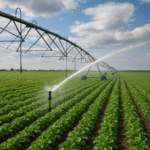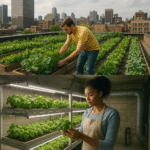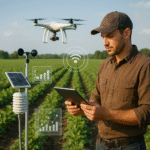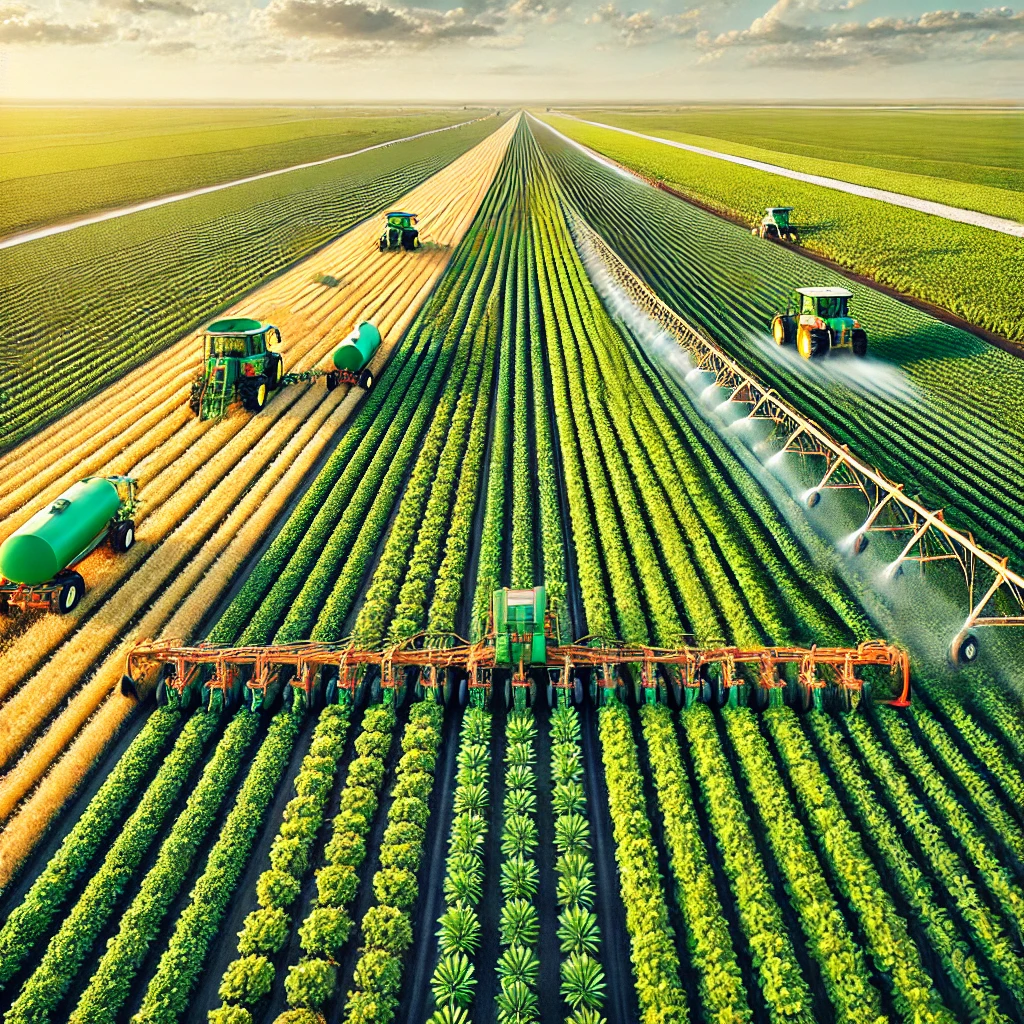Urban farming in developing countries is emerging as a powerful tool to address food insecurity. As urban populations continue to grow, the need for sustainable and efficient food production systems becomes increasingly critical. Urban farming offers a promising solution by utilizing available urban spaces to cultivate fresh produce, thereby enhancing food security and promoting economic development.
The Rise of Urban Farming
Urban farming, also known as urban agriculture, involves the cultivation, processing, and distribution of food within urban areas. This practice has gained significant traction in recent years, particularly in developing countries where food insecurity is a pressing issue. The rise of urban farming can be attributed to several factors, including rapid urbanization, limited access to arable land, and the need for sustainable food production systems.
One of the key drivers of urban farming is the increasing urban population. According to the United Nations, more than half of the world’s population now lives in urban areas, and this number is expected to rise to 68% by 2050. This rapid urbanization has led to a growing demand for food, putting pressure on traditional agricultural systems. Urban farming offers a viable solution by bringing food production closer to consumers, reducing the need for long-distance transportation, and minimizing food waste.
Another factor contributing to the rise of urban farming is the limited access to arable land in many developing countries. As urban areas expand, agricultural land is often converted into residential and commercial spaces, reducing the availability of land for traditional farming. Urban farming addresses this challenge by utilizing underutilized urban spaces, such as rooftops, vacant lots, and community gardens, to grow food. This not only maximizes the use of available land but also creates green spaces that enhance the urban environment.
Benefits of Urban Farming
Urban farming offers numerous benefits that contribute to food security and overall well-being in developing countries. These benefits can be categorized into social, economic, and environmental aspects.
Social Benefits
Urban farming fosters community engagement and social cohesion by bringing people together to work on common projects. Community gardens and urban farms provide opportunities for residents to collaborate, share knowledge, and build relationships. This sense of community can lead to increased social capital and a stronger support network, which is particularly important in developing countries where social safety nets may be limited.
Moreover, urban farming can improve access to fresh and nutritious food, particularly in low-income neighborhoods where food deserts are prevalent. By growing their own produce, residents can ensure a steady supply of healthy food, which can help combat malnutrition and diet-related diseases. Urban farming also provides educational opportunities, teaching people about sustainable agriculture, nutrition, and environmental stewardship.
Economic Benefits
Urban farming can create economic opportunities and generate income for individuals and communities. By selling surplus produce at local markets, urban farmers can earn additional income, which can be reinvested in their farming activities or used to support their families. Urban farming can also create jobs, particularly for marginalized groups such as women, youth, and the unemployed, who may have limited access to formal employment opportunities.
In addition to direct economic benefits, urban farming can stimulate local economies by supporting related industries, such as seed suppliers, tool manufacturers, and food processing businesses. This can lead to the development of a vibrant local food system that contributes to economic resilience and sustainability.
Environmental Benefits
Urban farming can have a positive impact on the environment by promoting sustainable agricultural practices and reducing the ecological footprint of food production. By growing food locally, urban farming reduces the need for long-distance transportation, which in turn lowers greenhouse gas emissions and energy consumption. Urban farms can also utilize organic farming methods, such as composting and natural pest control, which minimize the use of synthetic chemicals and promote soil health.
Furthermore, urban farming can enhance urban biodiversity by creating habitats for pollinators, birds, and other wildlife. Green spaces, such as community gardens and rooftop farms, can also mitigate the urban heat island effect, improve air quality, and provide recreational spaces for residents. These environmental benefits contribute to the overall sustainability and livability of urban areas.
Challenges and Solutions
Despite its numerous benefits, urban farming in developing countries faces several challenges that need to be addressed to ensure its success and sustainability. These challenges include limited access to resources, land tenure issues, and lack of technical knowledge and support.
Access to Resources
One of the primary challenges for urban farmers is access to resources, such as water, seeds, and tools. In many developing countries, water scarcity is a significant issue, and urban farmers may struggle to secure a reliable water supply for irrigation. To address this challenge, innovative solutions such as rainwater harvesting, drip irrigation, and greywater recycling can be implemented to optimize water use and ensure a consistent water supply.
Access to quality seeds and tools is also crucial for successful urban farming. Governments and non-governmental organizations (NGOs) can play a vital role in providing support and resources to urban farmers, such as distributing seeds, offering training programs, and establishing tool-sharing initiatives. By ensuring that urban farmers have access to the necessary resources, the productivity and sustainability of urban farming can be enhanced.
Land Tenure Issues
Land tenure is another significant challenge for urban farmers, particularly in informal settlements and densely populated areas. Many urban farmers do not have secure land tenure, which can lead to the risk of eviction and loss of investment in their farming activities. To address this issue, governments can implement policies that recognize and protect the rights of urban farmers, such as providing land leases or designating specific areas for urban agriculture.
Community land trusts and cooperative models can also be explored to ensure secure land tenure for urban farmers. These models involve collective ownership and management of land, which can provide long-term stability and support for urban farming initiatives. By addressing land tenure issues, urban farmers can invest in their activities with confidence and contribute to the overall food security of their communities.
Technical Knowledge and Support
Lack of technical knowledge and support is another challenge that urban farmers may face. Many urban farmers may not have formal training in agriculture and may lack the skills and knowledge needed to implement sustainable farming practices. To address this challenge, training programs and extension services can be established to provide urban farmers with the necessary knowledge and skills.
These programs can cover various aspects of urban farming, such as soil management, pest control, crop rotation, and post-harvest handling. By equipping urban farmers with the technical knowledge and support they need, the productivity and sustainability of urban farming can be significantly improved. Additionally, creating networks and platforms for knowledge sharing and collaboration among urban farmers can foster innovation and best practices in urban agriculture.
Case Studies and Success Stories
Several successful urban farming initiatives in developing countries demonstrate the potential of urban agriculture to address food insecurity and promote sustainable development. These case studies highlight innovative approaches and best practices that can be replicated and scaled up in other urban areas.
Havana, Cuba
Havana, the capital city of Cuba, is a prime example of how urban farming can transform a city’s food system. In the early 1990s, Cuba faced a severe food crisis due to the collapse of the Soviet Union, which had been a major supplier of food and agricultural inputs. In response, the Cuban government promoted urban agriculture as a means to increase food production and reduce dependence on imports.
Today, Havana is home to a thriving urban farming movement, with thousands of urban gardens and farms producing a significant portion of the city’s fresh produce. The success of urban farming in Havana can be attributed to strong government support, community involvement, and the use of sustainable farming practices. The city’s urban farms not only provide fresh and nutritious food but also create jobs, enhance food security, and contribute to environmental sustainability.
Nairobi, Kenya
In Nairobi, Kenya, urban farming has become an essential strategy for addressing food insecurity and improving livelihoods. The city is home to numerous urban farming initiatives, ranging from small-scale backyard gardens to larger community farms. These initiatives have been supported by various organizations, including NGOs, government agencies, and international development partners.
One notable example is the Kibera Youth Initiative, which focuses on empowering young people in the Kibera slum through urban farming. The initiative provides training, resources, and support to young urban farmers, enabling them to grow their own food and generate income. The success of the Kibera Youth Initiative demonstrates the potential of urban farming to create economic opportunities, improve food security, and foster community development in marginalized areas.
Conclusion
Urban farming in developing countries holds great promise for addressing food insecurity and promoting sustainable development. By utilizing available urban spaces to grow food, urban farming can enhance food security, create economic opportunities, and provide environmental benefits. However, to realize the full potential of urban farming, it is essential to address the challenges related to access to resources, land tenure, and technical knowledge and support.
Through innovative solutions, supportive policies, and collaborative efforts, urban farming can be scaled up and integrated into urban planning and development strategies. By doing so, developing countries can build resilient and sustainable food systems that contribute to the well-being of their urban populations and the overall sustainability of their cities.










